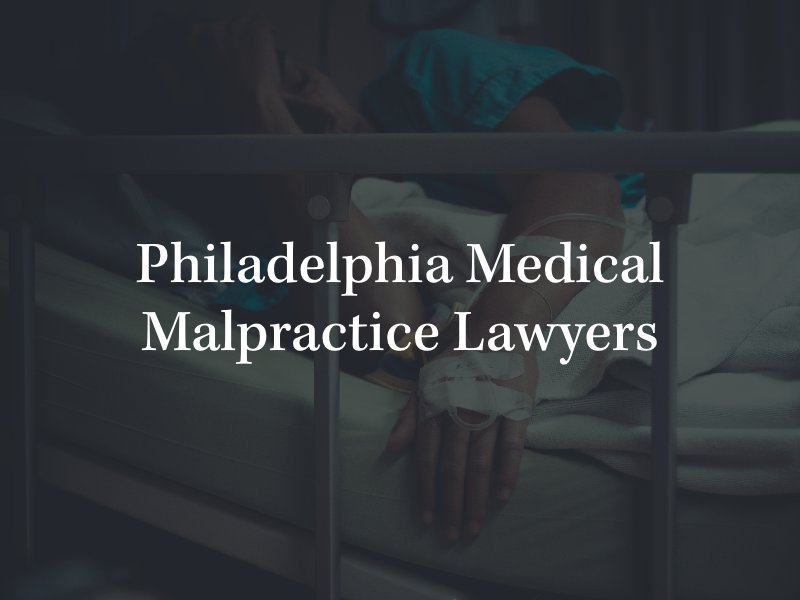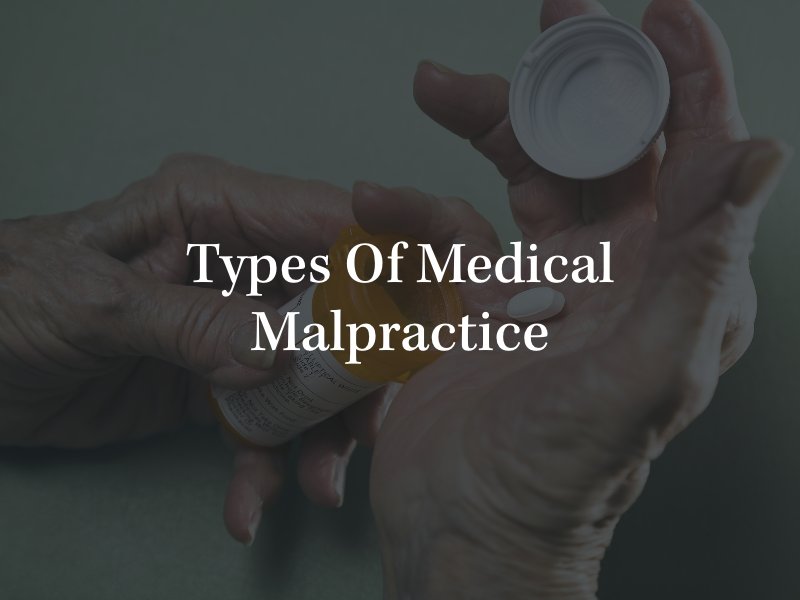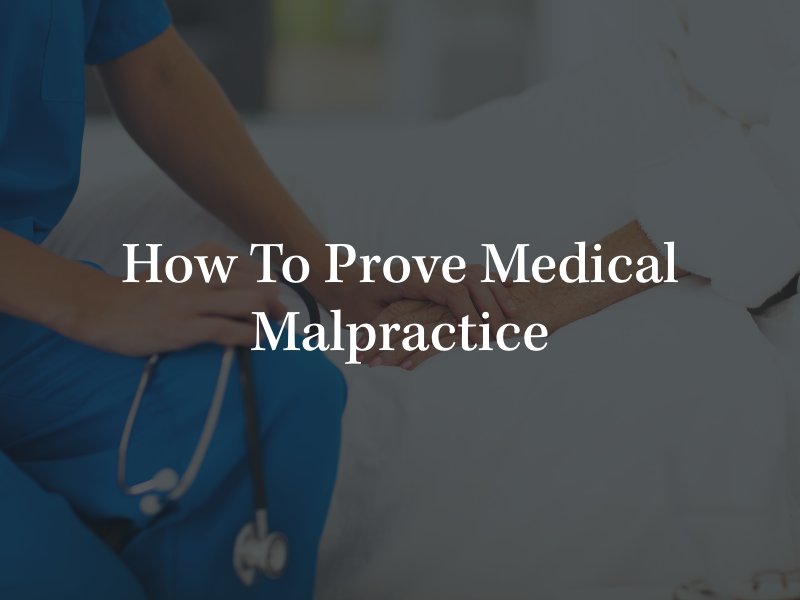Philadelphia Medical Malpractice Lawyer
At Ciccarelli Law Offices, our Philadelphia medical malpractice lawyers fight relentlessly for our clients. We don’t think that you should ever have to pay for someone else’s negligence. Let us help you on the road to by securing a settlement that will help you pay for medical bills, mental anguish, and lost wages from missed work.
Philadelphia Medical Malpractice Resources:
- Why Choose A Philadelphia Medical Malpractice Lawyer From Us?
- Ciccarelli Law Office’s Success In Medical Malpractice Cases
- How Much Does A Philadelphia Medical Malpractice Attorney Cost?
- Definition Of Medical Malpractice
- How To Prove Medical Malpractice
- Statute Of Limitations In A Philadelphia Wrongful Death Claim
- Compensation For A Medical Malpractice Case
Why Choose Our Philadelphia Medical Malpractice Attorneys
Ciccarelli Law Offices was founded by Lee Ciccarelli so he could for a practice devoted to the clients it serves. They take on the toughest cases and fight for their clients when they need it the most.
- Ciccarelli Law Offices brings decades of legal experience to the table. When it comes to medical malpractice cases, experience makes the difference.
- Lee Ciccarelli’s experience in medical malpractice and other personal injury trials serves as the foundation of the firm.
- Our injury lawyers in Philadelphia treat each case with the integrity, passion, and tenacity needed to win the toughest cases.
- You can call the Ciccarelli Law Offices for a free consultation on your medical malpractice matter.
Call our Philadelphia office at (215) 228-0100 today to schedule a free consultation with an experienced Philadelphia medical malpractice attorney from Ciccarelli Law Offices.
Our Philadelphia Medical Malpractice Attorneys Have a History of Success
Ciccarelli Law Offices has a history of success for its clients. They will treat each case as if it were the most important one they’ve taken on.
Lee Ciccarelli our founder and award-winning Philadelphia medical malpractice attorney once represented a Pennsylvania woman who suffered temporary pain and suffering following a surgical procedure after the surgical team committed one of the “never events” that we dread. A “never event” in surgery is just that – something that should never happen during the operation. During the course of this particular procedure, the hospital surgical staff failed to remove all surgical sponges from the affected area before closing the wound with sutures.
The medical mistake was realized shortly after the surgery, but not before an infection developed and caused a new round of treatment for an already suffering patient. The woman completely recovered, and the qualified and experienced team at Ciccarelli Law Offices was successful in obtaining a settlement amount of half a million dollars for the victim.
Medical mistakes should never happen. When they do, the Ciccarelli Law Offices is ready to hold those responsible for their actions accountable.
One client named Ray sums up the work of Ciccarelli Law Offices best when he says, “I’m 100% happy I chose this law firm. In a time when I was feeling helpless, they helped to ease my anxiety and earned every penny for their services. Thank you so much!”
Time after time, case after case, the Ciccarelli Law Offices bring successful resolutions for their clients. Medical mistakes are remarkably common, and we are here to help if one happens to you.
How Much Does A Philadelphia Medical Malpractice Lawyer Cost?
One of your first questions is likely to be, “How much will a medical malpractice attorney cost?”
You are going through enough and may not be able to afford to pay an attorney upfront or any out-of-pocket costs. The eventual cost of a medical malpractice case is going to center on what damages are eventually awarded. The good news is that may medical malpractice attorneys take clients on a contingency fee basis. This means that they will not charge you any out-of-pocket costs during the case, and you will only pay legal fees if they are successful with your case. The lawyer’s entire fee will be paid as a percentage of the settlement or award in the medical malpractice case.
One of the most common contingency fees is 33% of the eventual award or settlement, but some attorneys may use different fee amounts. In some cases, an attorney may use a lower percentage for cases that settle before trial and a higher percentage for cases that go to trial.
At Ciccarelli Law Offices we offer free case evaluations and charge no fees unless we win. We work on a contingency fee basis, which means you pay us nothing unless we win your case.
What is Medical Malpractice?
If something unexpected happens during the course of your medical treatment, you may have a malpractice claim. Medical malpractice occurs when a doctor, nurse, or another member of the medical community fails to provide you with adequate care. The success of your claim hinges on the medical professional’s attempt to provide “reasonable care.” In other words, another medical professional would have acted differently given the same circumstances.
Proving medical malpractice can be challenging. In order to adequately show that malpractice occurred, it is important to understand that there are various elements that must be present period these include:
- Failure to Diagnose: If you’re misdiagnosed or experience a delay in appropriate treatment as the result of a missed diagnosis, you may be eligible to file a misdiagnosis claim.
- Misaligned Treatment: A medical professional may choose the wrong form of treatment or administer it incorrectly. In this case, the doctor is committing negligence, and you may be able to collect compensation.
- Failure to warn the patient of all risks: Each medical procedure comes with its own risks, and it’s the job of the medical staff to educate you about all of them. If you’re not properly forewarned of the risks vs. benefits of a certain procedure, and you’re injured as the result of a known risk, you’re eligible to file a suit for negligence.
Other forms of medical malpractice include:
- Birth injuries: Birth injuries should never occur, but the reality is that the doctor, surgeon, or OBGYN involved with the delivery process could make a mistake. Other members of the delivery team could make errors as well. Birth injuries can include the misuse of forceps or vacuum devices, failure to recognize maternal or fetal distress, the failure to perform a cesarean section (C-section), the misuse of medications, and more.
- Medication errors: Medication errors are not uncommon in a hospital setting or outside of the hospital. These errors can include the administration of the wrong medication, administering the wrong dosage of a medication, failing to give medication at all, or administering medication at the wrong time or too close in a timeframe to another medication. Various members of the medical team can make a medication error, including doctors, nurses, pharmacy technicians, and pharmacists.
- Surgical mistakes: Surgical errors should never occur, but they do. This can include leaving foreign objects inside of individuals, operating on the wrong body part, operating on the wrong side of the body, failing to properly perform a procedure, not obtaining patient consent, and more. Surgical errors, due to the nature of these types of procedures, often result in significant injuries or illnesses for patients.
- Anesthesia errors: Anesthesiologists are highly trained medical doctors, and the process of a patient undergoing anesthesia is complex. Unfortunately, there are times when an anesthesiologist can make a mistake when calculating the medications or when monitoring the patient during a procedure. Any mistake when a patient is under anesthesia can result in long-term health consequences.
How To Prove Medical Malpractice?
The law establishes general criteria for determining medical malpractice. In order to successfully file a claim, your legal team must prove:
- That a doctor/patient relationship existed: The doctor you’re trying to sue must have a direct relationship with you: For example, you can’t try to file a claim over a casual conversation at a dinner party. If that conversation leads to an in-office relationship, however, you can.
- The doctor was negligent: There’s a difference between being dissatisfied with your care and being a victim of negligence. True negligence is the result of the doctor failing to provide adequate care when a more competent medical professional would have treated you differently. In other words, another medical professional would have to go on record defining a standard of care and illustrating how your doctor failed to adhere to that standard.
- Negligence directly leads to injury or illness: At times, it can be tricky to prove that a doctor’s actions directly led to injury, since the patients they see are often sick or injured already. For example, a loved one may have died from pneumonia, but it may or may not have been because of a doctor’s actions.
- The injury caused measurable harm: Even if a doctor committed negligence, you can only pursue a claim if you suffered as a result. Types of harm include physical pain, emotional or mental distress, lost wages, loss of earning capacity, and medical bills.
However, simply understanding the elements that must be in place is not enough to answer the question of how to prove the claim. When a medical malpractice attorney in Pennsylvania is trying to show that malpractice occurred, they will work with trusted medical experts who can examine not only the patient but also all medical records related to the incident. An attorney will obtain all medical records from the doctor or facility where the alleged error occurred. They will have expert medical witnesses examine this evidence, evaluate the patient, and come to a conclusion about whether or not an adequate standard of medical care was applied in the case.
If an expert medical witness determines that the standard of care was not met, this expert will need to write reports and likely testify in front of a jury about why they believe this is the case. It is important to point out that medical malpractice cases are hard to prove, and it is not uncommon medical professionals to be given a significant amount of leeway when it comes to mistakes that have been made. The goal of your medical malpractice lawyer is to point out the egregiousness of the error in order to help sway a jury.
Along with testimony from expert medical witnesses, an attorney will arrange the evidence in a visible manner so that a jury can see what happened. They may have the patient testify as to how the injury has affected them, which can include displaying any major life changes that have occurred, such as an inability to work or enjoy daily activities.
Evidence Needed to Prove Your Claim
Establishing those four elements of negligence when it comes to a medical malpractice claim is not necessarily easy. In fact, this is one of the most difficult aspects of the process. Your medical malpractice lawyer in Philadelphia will almost always enlist assistance from trusted medical professionals. These individuals will conduct a complete review of your medical records, and they may perform an extensive evaluation of you personally.
In many cases, the only way to actually show that medical malpractice occurred is to hear from expert witness testimony from other medical professionals. They will be able to tell a jury whether or not the standard of care was upheld by the original treating medical professional. They can explain what went wrong better than a layperson.
In addition to working with other trusted medical professionals, your attorney may work to get statements from other individuals familiar with your original treatment. This could include nurses, physician assistants, pharmacy technicians, nurse’s aides, and others.
Statute Of Limitations In A Philadelphia Medical Malpractice Claim
Understanding the deadline to file a medical malpractice claim in Philadelphia can be confusing because there are various exceptions that must be discussed. In general, Philadelphia medical malpractice victims have two years from the date the medical mistake occurred to file their claim against the alleged negligent medical provider. However, there is a discovery rule in place in these situations.
This means that the two-year “clock” will be “tolled” or paused until the moment the plaintiff actually knows or should have known that they sustained an injury caused by medical malpractice. For example, if a person does not discover until three later that an error occurred and that this error has caused them health consequences, they would have two years from the day they discovered the error to file the claim, essentially five years after the date the incident occurred.
However, Pennsylvania law also says that the vast majority of medical malpractice claims must be filed within seven years from the date the medical error occurred, regardless of when the plaintiff discovered the malpractice. Even though that is the current law, the Pennsylvania Supreme Court struck down this statute of repose, meaning that there is currently no outside time limit for filing claims after an incident of malpractice has been discovered (Yanakos v. UPMC, 655 Pa. 615 (2019)).
Regardless of the complexity of the medical malpractice statute of limitations in Pennsylvania, it is imperative for you to begin your claim as soon as possible. Any delay could result in significant complications, including degradation of the evidence or fading of the memories, and this makes it overall more challenging to gather the evidence needed to prove what happened.
Compensation for Medical Malpractice cases in Philadelphia
The most important thing in a medical malpractice case, beyond ensuring that you are recovering from the mistakes that were made, is knowing how much compensation you will receive. The Ciccarelli Law Offices understand that victims of medical malpractice incur much more than just medical expenses when a mistake occurs. Thankfully, the law in Pennsylvania allows victims of medical malpractice to recover a range of damages.
When we talk about damages in a medical malpractice case, we will focus on three kinds: general, special, and punitive.
General damages include certain elements that are not always easy to calculate. Though these damages are certainly real, it will take a skilled attorney and experts to define damages for the following properly:
- Loss of future earning capacity if you cannot work or return to the same level of work as you were capable of before the medical mistake.
- Loss of enjoyment of life
- Physical and mental pain and suffering
There are no set amounts on Pennsylvania law for general damages. Each case is unique. Arriving at a dollar amount will depend on the evidence your attorney gathers and uses in your case. Many factors go into these damage amounts: the type of work you do, how young you are, how long the disability is expected to last, and more.
Special Damages
Special damages refer to things that are a little easier to calculate. Here, we are referring to medical bills and lost income you have incurred if you missed work due to a medical mistake. For these damages, your attorney can refer to medical bills and your financial information. The cost of future medical bills may be a little more difficult to calculate. With the help of an expert medical witness, these estimates can be properly calculated.
Punitive Damages
Punitive damages are also often available to the victim of medical malpractice. As the name suggests, punitive damages are meant to punish the individual or agency responsible for the medical mistake. If a healthcare professional was grossly negligent or must have known they were behaving in a harmful manner, your attorney will move to secure punitive damages for your case.
If the medical mistake resulted in a death, the victim’s family and heirs would also be able to recover these damages and more through a wrongful death lawsuit. Speak to a Philadelphia wrongful death lawyer to learn more.
There are no Medical Malpractice damages caps in Pennsylvania
Many state legislatures have set a “cap” on how much compensation a victim of medical malpractice can receive. These laws can significantly stifle the amount of money a suffering victim recovers and the caps are often well below what is needed in certain cases.
There are currently no caps on economic or non-economic medical malpractice damages in Pennsylvania.
There are no caps on special damages such as medical bills and lost income or general damages such as pain and suffering. This means that victims of medical mistakes are able to recover all losses they have sustained.
The only caps that Pennsylvania applies in medical malpractice cases are those on punitive damages. The cap for punitive damages is set at two times the amount of “actual damages” in the case.
Contact a Philadelphia Medical Malpractice Attorney Today
You should speak with our team of experienced Philadelphia medical malpractice lawyers and let us help you fight for the best compensation. The Ciccarelli Law Offices is dedicated to providing a quality experience for our clients. We are not in this just for the money, but to hold those responsible for medical mistakes accountable for their actions. Contact or call our Philadelphia office today to schedule a consultation at (215) 228-0100.


